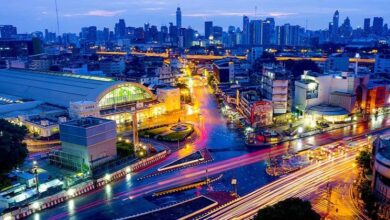Morocco has long been recognized as a vibrant tourist destination, celebrated for its rich history, diverse landscapes, and welcoming culture. The tourism boom in recent years has not only increased the number of visitors flocking to the country but has also had significant implications for the immobilier maroc sector. This article explores how the surge in tourism is reshaping the real estate market, affecting property values, rental demand, and investment opportunities across the nation.
The Rise of Tourism in Morocco
Tourism in Morocco has experienced remarkable growth, driven by several factors:
- Diverse Attractions: From the bustling souks of Marrakech to the serene beaches of Agadir and the stunning mountains of the Atlas, Morocco offers a wide array of attractions catering to different types of travelers.
- Accessibility: Increased flight connectivity and the development of infrastructure have made it easier for international tourists to visit Morocco. Major cities like Casablanca, Marrakech, and Tangier have seen improved transport links, enhancing their appeal.
- Cultural Experiences: The rich cultural heritage of Morocco, including its cuisine, arts, and festivals, attracts tourists seeking authentic experiences. Events like the Marrakech International Film Festival and the Festival of World Sacred Music in Fes showcase the country’s artistic vibrancy.
- Government Initiatives: The Moroccan government has actively promoted tourism as a vital economic sector. Programs aimed at enhancing tourist services, infrastructure, and marketing have helped boost the industry.
As a result of these factors, Morocco has welcomed millions of tourists each year, leading to significant changes in the real estate landscape.
Impact on Property Values
The influx of tourists has created heightened demand for various types of real estate, particularly in popular tourist destinations. This demand has led to an increase in property values, making real estate investment more appealing but also more challenging for local residents.
Rising Prices in Tourist Hotspots
- Short-term Rentals: Cities like Marrakech and Agadir have seen a boom in short-term rentals, with many property owners converting their homes into vacation rentals to cater to tourists. Platforms like Airbnb have facilitated this trend, allowing property owners to maximize their income. As a result, property prices in these areas have surged, driven by the lucrative potential of short-term rental income.
- Luxury Developments: The demand for luxury accommodations has also increased, leading to the development of high-end properties. Areas like the Palmeraie in Marrakech and Malabata in Tangier have seen significant investments in luxury villas and resorts, pushing up property values.
- Commercial Real Estate: As tourism grows, so does the need for commercial spaces such as hotels, restaurants, and retail outlets. Investors are increasingly turning to commercial real estate in tourist-heavy areas, driving up demand and property prices.
Challenges for Local Residents
While the rise in property values presents opportunities for investors, it also poses challenges for local residents. In many popular tourist areas, the cost of living has increased, making it difficult for local families to afford housing. Long-time residents may find themselves priced out of neighborhoods that were once affordable, leading to social and economic displacement.
Increased Rental Demand
The boom in tourism has significantly impacted rental markets in Morocco, particularly in urban and tourist-centric areas.
Short-term Rentals
The popularity of platforms like Airbnb and Vrbo has transformed the rental landscape. Property owners are increasingly opting for short-term rentals over traditional long-term leases, given the potential for higher profits. This trend has led to:
- Increased Competition: The surge in short-term rental options has created a competitive environment, making it essential for property owners to enhance their offerings. Features like modern amenities, unique decor, and exceptional service have become crucial for attracting guests.
- Regulatory Changes: As the popularity of short-term rentals has grown, so have concerns regarding regulation. Local governments are beginning to implement stricter regulations to manage the impact of short-term rentals on housing availability and neighborhood dynamics. Property owners must navigate these regulations to ensure compliance.
- Higher Rental Rates: With demand for short-term rentals skyrocketing, rental rates have increased accordingly. Tourists often pay a premium for the convenience and amenities offered by short-term rentals, contributing to rising prices in the overall rental market.
Long-term Rentals
In addition to short-term rentals, long-term rental demand has also seen an uptick, especially from expatriates and digital nomads attracted to Morocco’s culture and lifestyle. This trend is particularly evident in cities like Marrakech, Casablanca, and Rabat.
- Expatriate Community: Morocco has become a popular destination for expatriates seeking a lower cost of living and a rich cultural experience. This influx of foreign residents has increased the demand for long-term rentals, driving rental prices upward in certain neighborhoods.
- Digital Nomads: The rise of remote work has attracted digital nomads to Morocco, particularly in cities known for their vibrant cultures and coworking spaces. This demographic is often willing to pay higher rents for well-located properties with good internet access.
Investment Opportunities
The growing tourism sector has opened up various investment opportunities within the immobilier maroc market. Investors looking to capitalize on this trend can consider the following:
Residential Investments
Investing in residential properties, particularly in popular tourist areas, can yield significant returns. Here are some strategies:
- Buying for Rental Income: Purchasing properties in tourist hotspots for short-term rentals can be a lucrative investment. Investors should consider the location, property type, and amenities to maximize rental income.
- Renovation and Resale: Investors can acquire older properties, renovate them, and sell them at a profit. This strategy has gained popularity, particularly in historic neighborhoods where property values are on the rise.
Commercial Investments
The demand for commercial real estate has increased alongside tourism. Opportunities in this sector include:
- Hotel Development: The hospitality sector is booming, with increasing demand for hotels and boutique accommodations. Investors can explore opportunities in hotel development or acquisition.
- Retail Spaces: As tourist numbers rise, the demand for retail spaces catering to visitors has also grown. Investing in commercial properties in high-traffic areas can yield substantial returns.
Real Estate Funds
For those looking to invest in Moroccan real estate without directly managing properties, real estate investment funds provide an attractive option. These funds pool capital from multiple investors to acquire and manage a diversified portfolio of properties, allowing for passive investment in the growing immobilier maroc market.
Conclusion
Morocco’s tourism boom has significantly influenced the real estate market, leading to rising property values, increased rental demand, and abundant investment opportunities. While this growth presents exciting prospects for investors, it also poses challenges for local residents facing rising costs of living.
As Morocco continues to attract tourists from around the world, understanding the dynamics of the immobilier maroc sector is crucial for both investors and residents alike. By navigating these changes wisely, stakeholders can make informed decisions that benefit them and contribute to a sustainable and inclusive real estate market in Morocco. The interplay between tourism and real estate will likely continue to evolve, shaping the future of the country’s economy and society.





